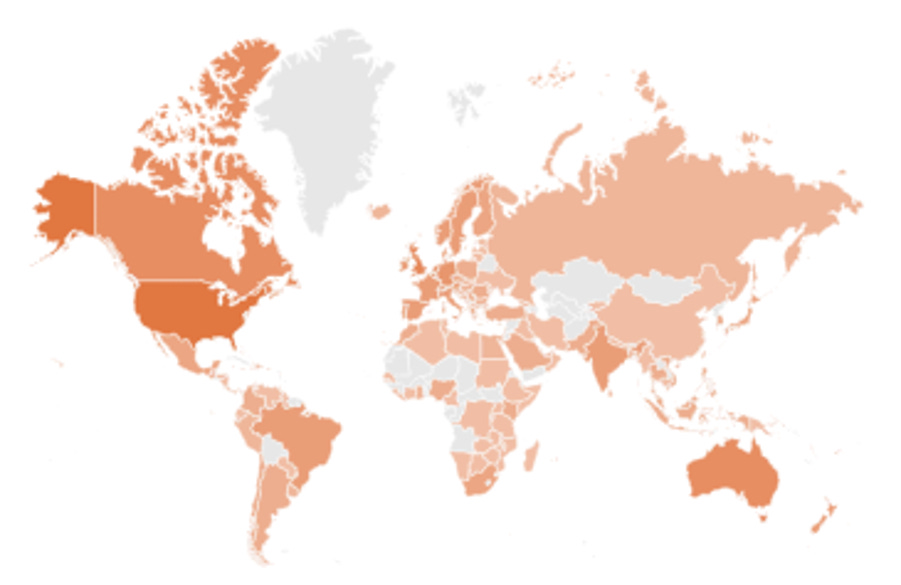It is happening. Last November, I turned 55 and became eligible to “retire” from the University of Colorado Boulder. Today, I submitted my formal “intent to retire” letter to my dean. Retirement is a funny word here — in Colorado, university professors do not receive pensions, so “retirement” just means that you can leave the employment of the university and keep your health care. I’ve also requested status as a an emeritus professor, which means keeping the title of “professor” and even more importantly, library privileges.
When I started THB, I described it as an experiment in a new way to conduct and support independent research and writing. That experiment is going well — while I haven’t yet replaced my academic salary, there is no doubt that without Substack, I wouldn’t be leaving academia. With this post I share my thinking about my decision.
The main reason I’m leaving academia is to pursue new opportunities.
I have recently joined the American Enterprise Institute (AEI) as a Nonresident Senior Fellow, and I could not be more thrilled. As a policy scholar, affiliating with one of the preeminent Washington, DC think tanks is always a career aspiration.1 AEI boasts hundreds of excellent scholars in various areas of policy research and has just created a new Center for Technology, Science, and Energy, led by the inestimable Tony Mills. My research and writing now has a path to much greater impact and influence. I will be very active with my colleagues at AEI and the new Center. I’m like a kid in a candy shop.
I have three books I want to write. The first is a sequel of sorts to the book that gives this site its name — The Honest Broker: Making Sense of Science in Policy and Politics. My new book is tentatively titled Uncomfortable Knowledge: Saving Science from Politics.2 I’ve just started the process of finding a publisher, and I am hoping to work with a major publisher (so if that is you, here is your chance!). My new book will grapple with the challenges of reconciling expertise with democratic governance, and will push back against those who argue that the main problem here is anti-science views among an uninformed public, misinformation or simply that some people hold the “wrong” ideological perspectives (i.e., different than those held by certain experts). The cases I’ll discuss in depth in the book are COVID-19, gender categorization in sport and, of course, climate change. I can guarantee a bit of uncomfortable knowledge for everyone.
I have spent 24 years as a tenured professor, with 20 of them as a full professor. If I can be permitted one short paragraph of immodesty — I have had a great academic career. I have become a part of multiple networks of wonderful scholars around the world and conducted impactful, collaborative research (which will of course continue). At Colorado, I founded two world-leading research centers, developed two unique graduate policy programs, taught many classes to 1000s of students, and advised many graduate students who have gone on to great careers, some of whom I count among my closest colleagues. It has been a great ride, and I’ve accomplished everything I ever wanted to as a university professor.

I have had many wonderful faculty colleagues at the University of Colorado Boulder. Some have moved on and many are continuing to do great things here in Boulder. I fully intend to keep up those relationships and collaborations.
Working as a tenured full professor is a privileged occupation, for sure. At the same time, academia is not as fun as it used to be, at least from my perspective. In the future I’ll have much more to say about academia and how it might be improved, but for now let me just highlight a few issues from my experiences, and which are not unique to the University of Colorado.
One is student accessibility. Many flagship public schools are inaccessible to many, and Colorado is one of the least accessible. The main reason for that is money. Colorado depends on out-of-state tuition dollars, and this is a big reason why among public universities, Colorado has the largest proportion of undergraduates whose families are in the top 1% of income — 8.2% according to a 2020 study. I have for many years been a critic of my campus for its lack of diversity (especially economic diversity among its undergraduates) and I even taught a graduate seminar on diversity on campus. I have not been involved with campus “DEI” activities, but I am doubtful that these policies and new administrative positions are doing to do much to improve accessibility at the University of Colorado Boulder.
Another issue, again not unique to Colorado, is an unhealthy obsession with football. I am a huge sports fan and participant. I spent four years inside the Colorado Athletics Department and saw its operations from the inside, and know many wonderful people who work there. I’ve also written extensively about the pathologies of big time college athletics, which is undergoing tectonic changes at the moment. Even so, the Regents and administrators at the University of Colorado seem to have lost their collective minds over football. The university recently shared that last year it had provided a $28 million transfer from non-athletics university accounts to athletics and extended another $10 million as a loan to cover the department’s record operational shortfall. That is $38 million that did not go to academics. Universities move money around all the time from revenue-positive activities to those that operate at a loss — that’s is not a problem. The problem is priorities and accountability. For instance, there are many graduate students and instructors on campus being paid less than a living wage — Shouldn’t faculty have some say when administrators take significant money from academics to support unrealistic fantasies of football glory?3
A final concern is the apparent inability or unwillingness of administrators to support their faculty. Unfortunately, I’ve seen many instances. Administrators often seem to forget that they work for the faculty, not the other way round. I can share a few of my own experiences. In 2015, when I was “investigated” by a member of Congress who did not like my peer-reviewed research, no administrator (not even my department chair) on my campus spoke to me about it or even checked in to see how I was doing. I heard only from university lawyers. Similarly, when an overly enthusiastic department chair decided to bully and harass me over the past few years, administrators stood by silently while fully aware.4 I could go on. My experiences, and those I’ve witnessed among peers suggest that, at Colorado at least, administration is far too detached from the faculty, and is far too bloated as well. The diminishment of faculty governance is not a good thing.
I am thrilled that going forward I’ll be keeping the things about my work that I like the most and leaving behind the things I like the least. From afar, everything is going to look pretty much the same. THB will be as content-rich and provocative as ever and my sports writing will be published at Sporting Intelligence. With emeritus status I’ll still be “Professor Pielke” at the University of Colorado Boulder.5 I will also continue to publish in the peer-reviewed literature. More broadly, I expect to be more productive in my writing and have much more time for book-length projects. I could not be more happy.
The biggest difference? Now I work for you. I am embarking on truly independent research and writing, and it will depend more than ever upon your support to continue to make that possible. So please consider clicking on that subscribe button — Remember, honest brokering is a group activity. Thank you for your support! Onwards we go . . .
Historically, AEI along with the Brookings Institution are arguably THE preeminent U.S. policy think tanks.
The title is an explicit nod to my late friend and mentor Steve Rayner.
I’ll discuss athletics governance in U.S. universities in more depth in a future post, but a much-needed step would be to carve football out as its own entity, and provide separate governance and transparent budgeting for football only, apart from other athletics activities.
It is perhaps just a coincidence that the overly enthusiastic department chair happens to be a close colleague of the director of the University of Pennsylvania Center for Science, Sustainability, and the Media. I’ll say no more, but if you know, you know.
While I doubt that another tenured faculty position is in my future, I am certainly open to new university affiliations, including opportunities to spend a semester or two in residence as a guest professor. My sabbaticals at Oxford University and the University of Oslo have been among my most rewarding professional experiences. I also expect to continue to teach, whether in-person or remotely. If interested, hit me up!





Good luck in your new career direction Roger. I enjoyed chatting with you on your recent trip to Calgary & will continue to be a subscriber. Looking forward to the new books!
Best of luck to you. I count you among my favorites. On the football thing, is the contribution given by the school related to the implosion of the PAC 12? Most Div 1 schools are paid by the conference, not the other way around.